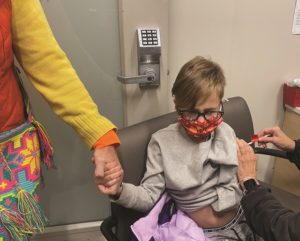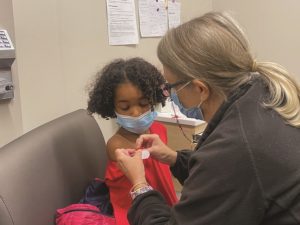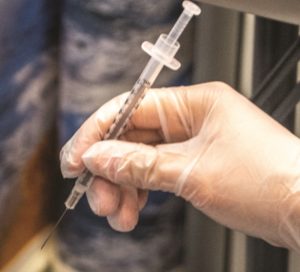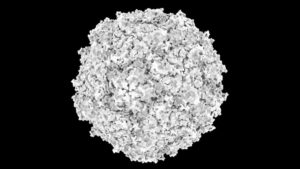The immunization of children entering kindergarten against preventable diseases in all four towns on Outer Cape Cod lags far behind statewide averages. In both Truro and Provincetown, less than 80 percent of the children have been fully vaccinated, according to the most recent state statistics.
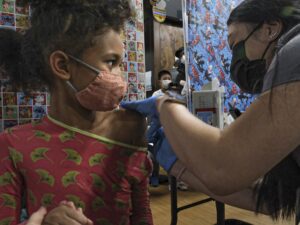
The Mass. Dept. of Public Health (DPH) requires that kindergartners be vaccinated for polio (4 doses), measles, mumps, and rubella (2 MMR doses), diphtheria, tetanus, and pertussis (5 DTaP doses), hepatitis B (3 doses), and chicken pox (2 varicella doses). Compliance with the requirements falls to local school districts.
For schools with fewer than 30 kindergartners, as is true in all four Outer Cape towns, the DPH provides immunization data in three-year averages. Only 77 percent of the children entering Truro Central School in 2021-2024 have been fully immunized, according to DPH data. Provincetown’s three-year average for entering kindergartners is almost as low, with only 79 percent fully vaccinated.
At Wellfleet Elementary, 85 percent of entering kindergartners have had all required immunizations, and in Eastham the percentage is 88.
Statewide, approximately 94.4 percent of kindergartners were fully vaccinated in that same three-year period; in Barnstable County, it was 92.6 percent.
Vaccines protect not only the person vaccinated but also those around them by blocking the spread of disease. The higher the percentage of people vaccinated, the lower the chance of an outbreak of — a concept referred to as “herd immunity.”
Immunization also protects members of the community who are either too young to be vaccinated or can’t be immunized because of a medical condition.
According to the Centers for Disease Control & Prevention, about four million deaths from childhood diseases worldwide are prevented by vaccination every year.
The Centers for Disease Control and Prevention sets herd immunity for measles at 95 percent. Provincetown is therefore potentially vulnerable to a measles outbreak because only 86 percent of its kindergarten students were inoculated. Statewide, 96.3 percent of kindergartners were inoculated against measles in 2024.
According to the CDC, there have been 251 reported cases of measles in the U.S. so far this year; in 88 percent of those cases, the person was not inoculated. Nearly half were under five years old, and more than half of that younger group required hospitalization.
A Dearth of Pediatricians
Dr. Barry Zuckerman of Wellfleet, former chair of pediatrics at Boston Medical Center, said the dearth of pediatricians on the Outer Cape is likely a factor in the low vaccination rates. “I’m not even sure how many family medicine doctors there are,” he said. “They would be the only other ones giving shots to kids.”
“It is hard to know exactly why vaccination rates on the Outer Cape are different,” said DPH spokesman Omar Cabrera in an email. “Factors that negatively impact vaccine confidence include mistrust of health authorities, vaccine misinformation from media sources and social contacts, lower health/science literacy and ‘vaccine fatigue.’ ”
Zuckerman said the “right-wing social media stuff is extraordinarily anti-vaccines. You know all your Trump voters are tuning in to those media.”
In Massachusetts, parents may keep their children from being vaccinated either with a medical exemption from the child’s doctor or a religious exemption, if the parents declare it conflicts with their religious beliefs.
Barnstable and Dukes counties have the highest combined rate of religious and medical exemptions in the state. Barnstable’s rate is 3.5 percent and Dukes County’s is 4.8 percent for 2024.
“We have seen higher rates of exemptions on Cape Cod and the Islands for many years,” Cabrera said, adding that the current numbers are not very different from the pre-Covid era.
Truro had the county’s highest combined rate of exemptions at 13 percent, according to state data. Eastham’s rate was 8 percent, Wellfleet’s 5 percent, and Provincetown’s 2 percent. But while Provincetown’s exemption rate was the lowest, its “gap” rate was highest at 19 percent: students with neither all required vaccines nor exemptions on file.
Truro Supt. Stephanie Costigan said her data show that 92 percent of the school’s kindergartners are “in compliance” with state requirements for the current school year. She said that calculation classifies children with exemptions as compliant.
Provincetown Supt. Gerry Goyette said his district is still “crunching the numbers” on students who aren’t vaccinated. “When the nurse does the state survey, she reaches out to each individual family who needs immunizations and assists them,” he said. “Immunizations seem to be a disconnect with some families, but upon communication with the nurse they make plans to bring students up to date.”
Wellfleet Elementary Principal Adam O’Shea said school nurse Claudia Cope-Crosen produces an immunization noncompliance report that leads to letters and phone calls to families not fully immunized.
“Recognizing that one of the barriers on the Outer Cape is access to primary care, Claudia Cope-Crosen worked in coordination with the Cape Cod VNA [Visiting Nurse Association] to provide vaccine access,” said O’Shea in an email.
Mary Ellen Reed, the Nauset school district’s director of health services, said immunization policies are uniform districtwide. Medical exemptions are rare, she said, and most exemptions are religious.
“If it’s a religious exemption, we try to provide education about what it would mean if we had an outbreak in the school,” Reed said. Children who have not been fully immunized for the disease would be blocked from attending school, she said.
Sometimes, health insurance can be a barrier to being fully vaccinated, Reed added. The school will help families get assistance with securing insurance through Health Connections at Outer Cape Health Services.
“We have pediatric vaccination standing orders across all three sites to reduce vaccination barriers,” said OCHS CEO Dr. Damian Archer. “Last fall we did a project on vaccinations for ages zero to two years and raised our vaccine rates by 20-plus percent. Overall, the biggest challenge we face is parent hesitancy due to cultural, religious, and political values.”
